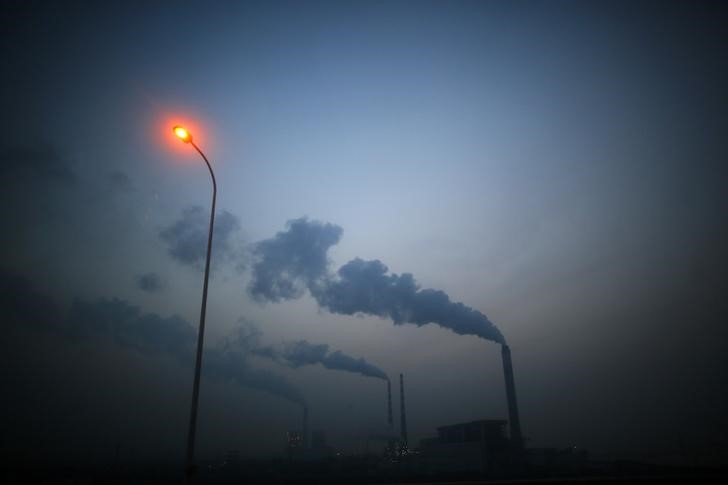* Costs of extracting carbon from air fall to $94-$232 a tonne
* Previous estimates were around $600 - Carbon Engineering
* Carbon can be used to make clean fuels
By Alister Doyle
OSLO, June 7 (Reuters) - High costs of extracting greenhouse gases from thin air could tumble with new technologies that can help to combat climate change, scientists said on Thursday.
Carbon Engineering, a Canadian-based clean energy company, outlined the design of a large industrial plant that it said could capture carbon dioxide from the atmosphere at a cost of between $94 and $232 a tonne.
That is well below past estimates of about $600 a tonne by the American Physical Society, said David Keith, a Harvard University physics professor and the founder of Carbon Engineering who led the research.
"I hope to show that this as a viable energy industrial technology, not something that is a magic bullet ... but something that is completely doable," he told Reuters of the peer-reviewed study published in the journal Joule.
Carbon Engineering, which has about 40 employees and produces about a tonne of carbon dioxide a day from an experimental plant. The technology makes synthetic fuels using only air, water and renewable power.
Keith said an industrial-scale plant could make fuel at a dollar a litre. That would be competitive in California, where low carbon fuel standards to cut pollution from cars and trucks mean high prices.
He said some investors were interested. An industrial plant, costing hundreds of millions of dollars, could capture a million tonnes of carbon dioxide a year, equivalent to emissions by 250,000 cars.
Other experts welcomed the study as a step to clear up huge uncertainties about the costs of "direct air capture".
U.N. reports indicate that governments may have to deploy such novel technologies this century to remove carbon from nature and bury it to limit global warming under the 2015 Paris climate agreement.
"Direct air capture is a politically promising route for carbon dioxide removal," said Oliver Geden, of the German Institute for International and Security Affairs.
And an air capture plant could be built almost anywhere. It would not threaten farmland, unlike options of planting vast forests which soak up carbon dioxide, he said.
Climeworks, a Swiss company and Carbon Engineering's main rival, also told Reuters it was hoping to cut its production price to $100 a tonne in the next 5-10 years, from about $600 now. It sells carbon dioxide to greenhouses as an airborne fertiliser to grow tomatoes or cucumbers. Wurzbacher, a founder of Climeworks, said more and more governments are likely to jack up penalties on carbon emissions to limit floods, storms and rising seas in coming years, making the technology more viable.
The World Bank says Sweden has the highest carbon taxes, currently 1,150 Swedish crowns ($133) a tonne.
$1 = 8.6600 Swedish crowns)
